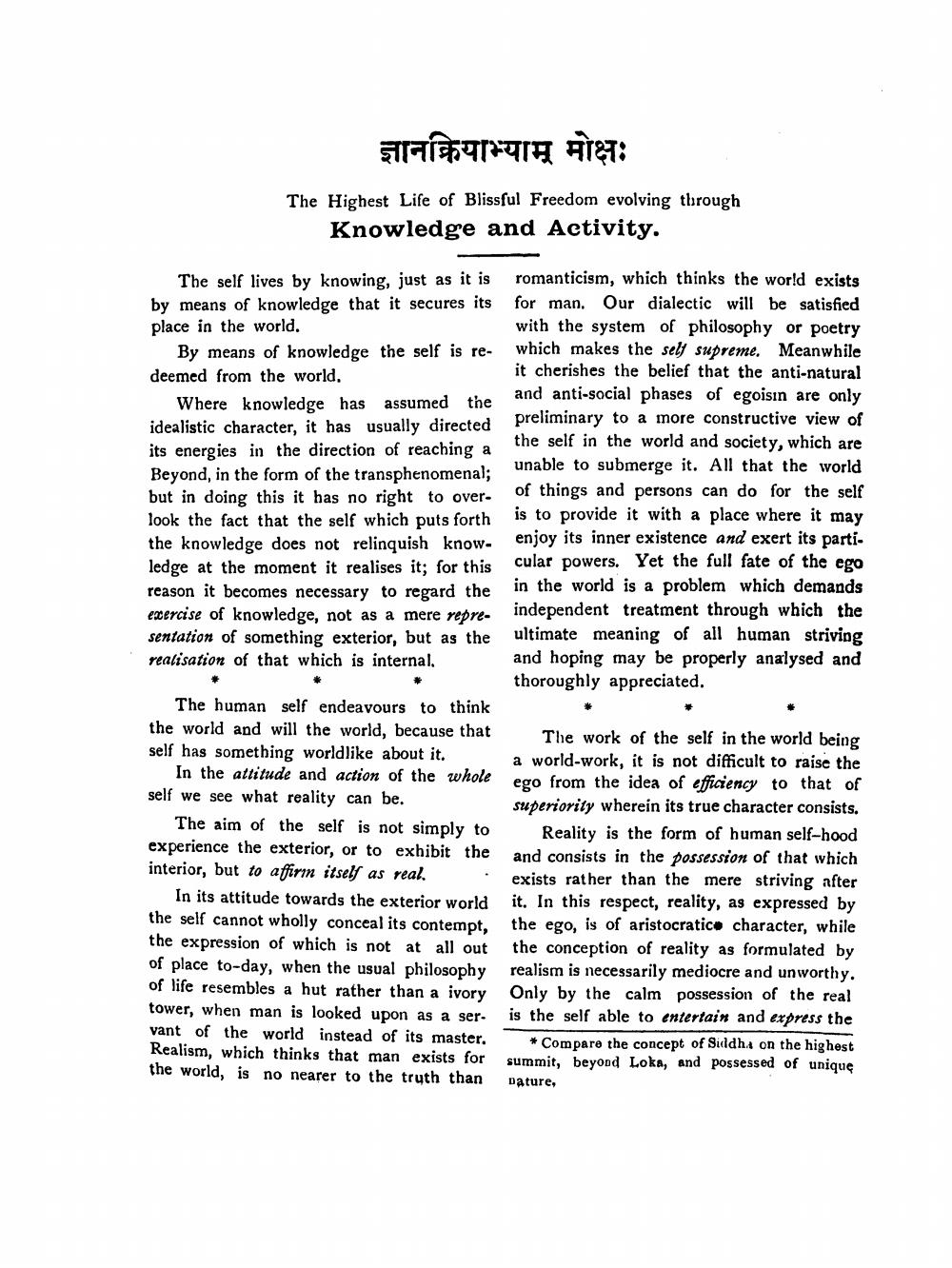________________
The Highest Life of Blissful Freedom evolving through
Knowledge and Activity.
The self lives by knowing, just as it is by means of knowledge that it secures its place in the world.
By means of knowledge the self is re- deemed from the world.
Where knowledge has assumed the idealistic character, it has usually directed its energies in the direction of reaching a Beyond, in the form of the transphenomenal; but in doing this it has no right to overlook the fact that the self which puts forth the knowledge does not relinquish knowledge at the moment it realises it; for this reason it becomes necessary to regard the exercise of knowledge, not as a mere repre- sentation of something exterior, but as the realisation of that which is internal,
romanticism, which thinks the world exists for man. Our dialectic will be satisfied with the system of philosophy or poetry which makes the self supreme. Meanwhile it cherishes the belief that the anti-natural and anti-social phases of egoisin are only preliminary to a more constructive view of the self in the world and society, which are unable to submerge it. All that the world of things and persons can do for the self is to provide it with a place where it may enjoy its inner existence and exert its particular powers. Yet the full fate of the ego in the world is a problem which demands independent treatment through independent treatment through which the ultimate meaning of all human striving and hoping may be properly analysed and thoroughly appreciated.
The human self endeavours to think the world and will the world, because that self has something worldlike about it.
In the attitude and action of the whole self we see what reality can be.
The aim of the self is not simply to experience the exterior, or to exhibit the interior, but to affirm itself as real.
In its attitude towards the exterior world the self cannot wholly conceal its contempt, the expression of which is not at all out of place to-day, when the usual philosophy of life resembles a hut rather than a ivory tower, when man is looked upon as a ser vant of the world instead of its master. Realism, which thinks that man exists for the world, is no nearer to the truth than
The work of the self in the world being a world-work, it is not difficult to raise the ego from the idea of efficiency to that of superiority wherein its true character consists.
Reality is the form of human self-hood and consists in the possession of that which exists rather than the mere striving after it. In this respect, reality, as expressed by the ego, is of aristocratico character, while the conception of reality as formulated by realism is necessarily mediocre and unworthy. Only by the calm possession of the real is the self able to entertain and express the
Compare the concept of Siddha on the highest summit, beyood Loka, and possessed of unique Dature,




